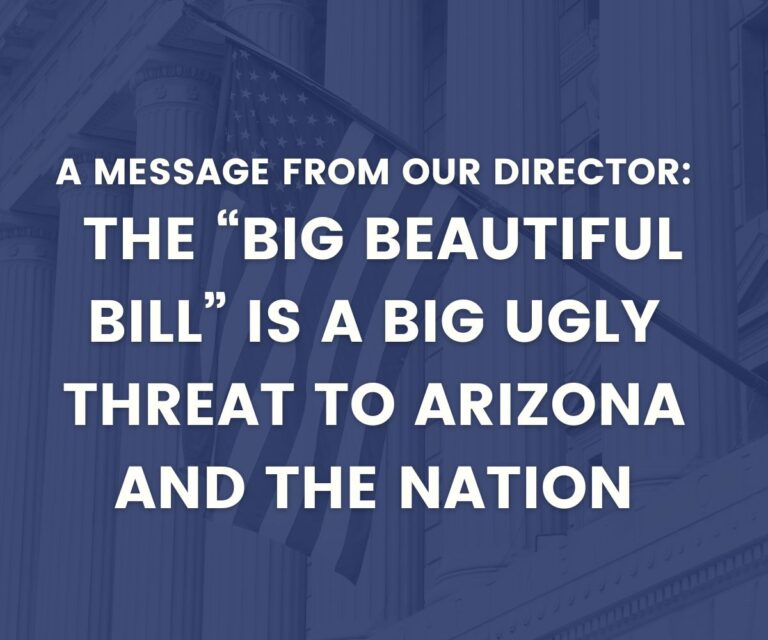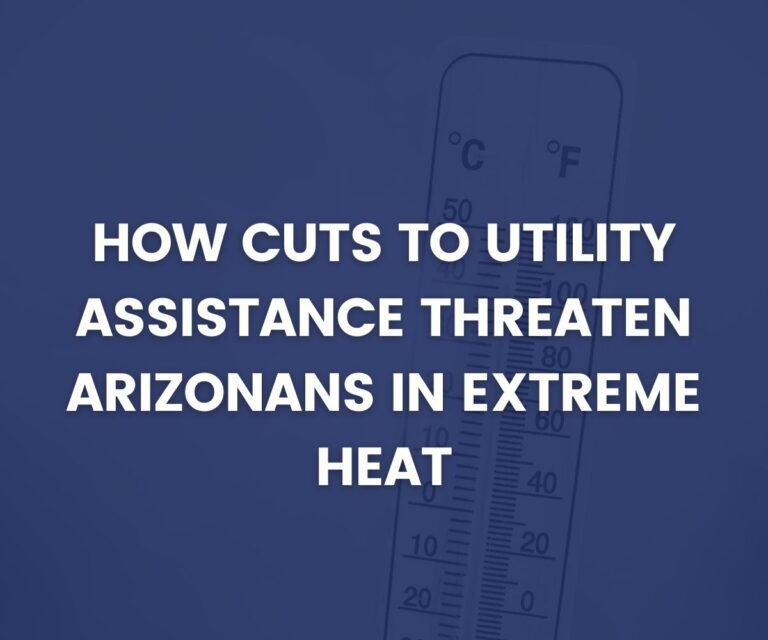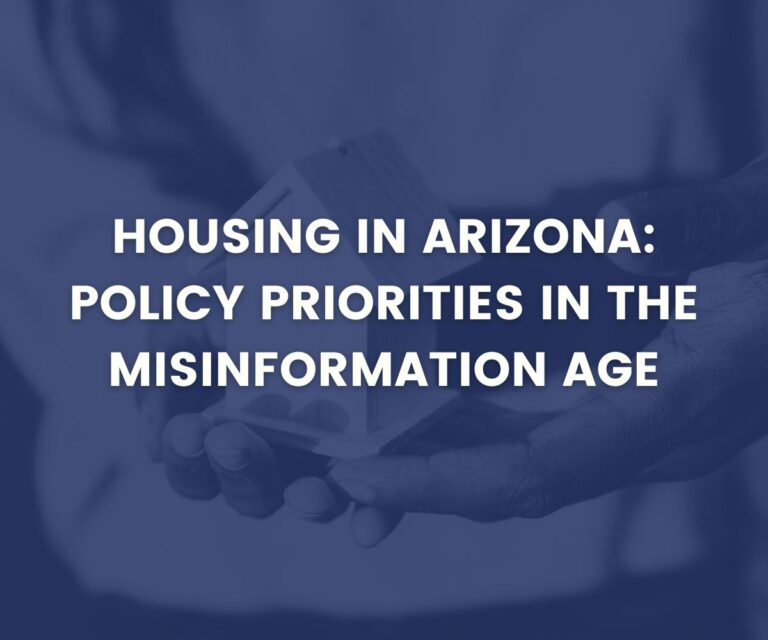
How The Expanded Child Tax Credit Empowers Arizona Families and Combats Child Poverty
This post is the second in our online series on the expanded Child Tax Credit – featuring key section(s) of our full report. Click here to view our first entry on how the expanded Child Tax Credit empowers Arizona families with lower incomes.
The expanded Child Tax Credit (CTC) made possible through the American Rescue Plan Act now reaches more families and provides them with larger, regular advance payments so they can afford their basic needs. In August 2021 alone, over $352 million in expanded CTC payments were disbursed to families in Arizona, with an average of $444 per household. And recently, the Household Pulse Survey collected information from respondents how they used payments from the expanded CTC. Among those who received a CTC payment in August, the most frequently-cited uses of the credit included food, clothing, utilities and telecommunications, and paying down debt1. These responses show that the expanded CTC is vital for families who are spending these resources on their basic needs.
Combating Child Poverty
Economists anticipate that the expanded CTC will reduce child poverty in Arizona by nearly half – in large part thanks to making the credit fully refundable for all families. This is in part because the expanded CTC helps many families that face barriers and shortcomings with Arizona’s state-administered programs for children. Due to years of underinvestment, programs to support children have reached fewer and fewer families, and have not kept pace with rising costs of living (including food, rent, child care, transportation, utilities, and other needs).
For example, the Temporary Assistance for Needy Families (TANF) program provides cash assistance to families with the lowest incomes, yet only 6% of Arizona families in poverty are enrolled (a share that has steadily fallen since the 1990s), disproportionately excluding families of color from needed assistance.2 This is due to years of state policy changes that decreased the amount of assistance available and increased barriers to enrollment—changes that have failed to effectively fight poverty. The expanded CTC addresses a key gap in combating economic hardship and poverty in Arizona, where state officials have neglected to take meaningful action, before and during the pandemic.
Through the expanded CTC, more children will be lifted out of poverty in Arizona than many other states. According to the Center of Budget and Policy Priorities, the expanded CTC will cut poverty by 45% in Arizona, even greater than the U.S. average of 41%. For Latino and Black children in Arizona, child poverty among these groups will be reduced by 47% and 51% respectively (compared to 41% and 42% nationally, see table below).
I lost my job during the pandemic, and my wife and I had to deplete our savings to help pay the costs of raising our family. I'm now working full-time again, and the tax cut our family received thanks to the expanded Child Tax Credit is helping us build our savings back again so we'll be able to face the unexpected expenses that come with raising four kids. -- Benny, a Tucson father of four
While the expanded CTC is expected to significantly reduce child poverty in Arizona, it will also yield long-term positive impacts for the children and families it reaches. Research has found that an extra $3,000 in a family’s annual income when a child is young leads to 19% higher future earnings3. Beyond future earnings, higher income for a family during early childhood can lead to positive outcomes, such as higher test scores4, higher graduation rates5, improved health6, reduced need for future income support7, and lower rates of incarceration8. And additional evidence has found that public investments in children, like an expanded CTC, can yield significant returns for the entire economy9.
Bolstering Communities of Color
Expanding the CTC is instrumental in furthering an equitable recovery for Arizona. During the pandemic, Latino households, Black households, and households of other or multiple races in Arizona have been more likely to have lost employment income or face hardship.10 This follows decades of disinvestment for these communities, be it in public education, affordable housing, or quality child care (to name a few). Arizonans of color faced many structural barriers to opportunity before the pandemic— which has prolonged and deepened the economic recession for many.
The history of the CTC serves as a powerful example. Before the American Rescue Plan Act, the CTC disproportionately excluded Latino and Black children in Arizona from receiving the full credit, as many of those families did not have enough tax liability to qualify. Making the credit fully refundable will finally include these families, reaching hundreds of thousands of more children, driving the previously mentioned reduction in child poverty.
I have three of my own, and I’m their sole income provider. At a time when expenses tend to pile up, the expanded Child Tax Credit gave us a little wiggle room. It was a huge relief when we received the first payment, but knowing that this support is something I can count on every month changes the game entirely. -- Meloniece, a San Tan mother of three
Having empowered Arizona’s families for the past three months, the expanded CTC should be made permanent, among other key changes. As Congress advanced economic recovery and infrastructure legislation, including these changes is central to putting Arizona’s children and families first.



